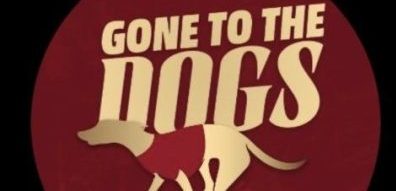Today a letter was published by the Stakeholder working group who have been in discussions with the GBGB.
We are disappointed and dismayed to learn that more than four months after the GBGB agreed in principle to adapt the code of practice for tracks that we as a group put together, it has been rejected.
Our group is made up of trainers, owners, breeders, kennel hands and other stakeholders, and we believe the measures contained in the code should be a given – the minimum that tracks should do to portray a professional image and to provide a positive experience for all stakeholders who attend them.
We do not believe we are asking for anything unrealistic or unreasonable, and the refusal of the board to adopt the code sends a very poor message to all those with an interest in greyhound racing and its future.
The lack of traction for the code also raises serious issues about the effectiveness of the GBGB executive and the transparency of decision making within the board.
The board agreed in principle to adopt the code on June 10th, subject to some alterations suggested by certain promoters on the board – changes that were quickly made. Despite the GBGB executive agreeing in principle to adopt the code, it has been rejected by promoters on the board at every subsequent GBGB board meeting.
After several online and in-person meetings, it seems to us that the GBGB lacks either the power or the will to govern effectively – its executive appears to be subordinate to a small group of promoters who wield the power and influence decision making.
We believe that a majority of board members were in favour of the code being adopted, but an influential minority have blocked it. This appears undemocratic and opaque.
The code discussions formed the first meeting of a series which were designed to discuss and implement improvements across a range of issues affecting the sport including marketing, welfare, rehoming, careers, the ownership experience, prize money structure and more.
We note that many of the issues that prompted the initial formation of the group are still all too apparent, with recent weeks seeing a Category 1 competition being dropped due to a lack of sponsorship, and entire meetings being dropped due to insufficient available runners.
As a group we are considering our next steps, but it is apparent to us that despite encouraging initial conversations with the board, nothing has been achieved. It is also apparent that under its current structure and composition, the GBGB is unable to make the changes that the sport badly needs.
It seems likely that there will be significant change to the make up of the board over the coming year, with several directors leaving, the chairman role being up for election in 2025, and, potentially, new track owners entering the picture.
We hope this represents an opportunity to form a more transparent and democratic board structure with greater stakeholder representation and a genuine will to make positive change.
Signed:
• Tony Brealey, owner, Coppice Racing
• Jade Browne, assistant trainer, Adachi Racing
• Claire Conley, owner/breeder/rearer
• Callum Field-Mullins, kennel hand
• Tom Heilbron, trainer
• Brian Hough, owner
• Nathan Hunt, trainer/breeder
• Kevin Hutton, trainer/breeder
• Phil Milner, trainer/breeder
• Josh Sealey, track preparation specialist
• George Sell, owner/syndicate manager
The code was set out as follows
Code of practice for tracks
Tracks should strive to ensure they provide a positive experience which will result in all stakeholders – visitors/customers, owners, staff, trainers and kennel hands – wishing to return.
Proposed code of practice
Track
• Ensure regular maintenance of track surface, and all mechanical aspects of running a meeting – hare, traps, lighting, cameras etc.
• At tracks where temperatures regularly drop below freezing in the winter, ensure covers are laid well in advance if sub-zero temperatures are forecast
• Ensure grass areas are mown and areas surrounding track are clean, well maintained and free of litter
• Provide a well-maintained and well-lit path from traps to pick up
• Provide an attractive presentation area – well maintained with podium which features logos and name/date of race, backdrop for photos, planting etc
• Ensure a functioning clock recording sectional and winning times is visible to all race goers
Kennels and paddock
• Ensure all kennels and paddock areas are clean, disinfected and well maintained
• Ensure kennels are sufficiently insulated to keep dogs warm in winter and sufficiently ventilated to keep them cool in summer – between 10 and 26 degrees C
• Ensure adequate matting is provided which is clean and in good condition
• Provide changing area and hygienic wash stations for staff
• Ensure dog waste is picked up and disposed of suitably
• Ensure pre- and post-race vetting procedures are standardised
• Ensure kennelling times are standardised
User/guest-facing areas
• Ensure public areas are clean, well maintained and free of litter
• Ensure facilities such as bars and catering have sufficient staff to prevent unacceptably lengthy waits for food/drink etc
• Provide an owner/trainer area with complimentary tea, coffee and soft drinks
• Provide tea/coffee/food for attending press
• Ensure sufficient race cards are printed for each visitor to have one
Staff
• Ensure each member of staff receives sufficient training to perform their role professionally, especially those roles which have a direct impact on the welfare and safety of the dogs
• Tracks to ensure staff are well presented, smart and dressed appropriately and uniformly. Trainers and kennel hands to be subject to same standards.
• Ensure sufficient staff are engaged to make each meeting run smoothly
Mark Bird, the Chief Executive of the GBGB responded
“We entered the discussions with the Group with hope and the best intentions that we could find common ground that met their concerns and addressed a number of mutually identified issues. Unfortunately, whilst these meetings were productive, there were a number of areas where what they wanted to discuss fell outside the remit of GBGB as regulator of the sport.
“We had, however, hoped to find a way to adopting a sport-wide Code of Conduct which met their wishes and ours as a Board. Unfortunately, whilst we saw this as something that would apply to a variety of stakeholders across the sport, the Group instead wanted a focus on requirements for tracks to be a standalone document and published in advance of anything else. The Board did not agree with this approach and were likewise keen not to duplicate what is already in place through the Rules of Racing. The Group are right to say that the Board was, in principle, in favour of a Code. But when it came down to what it contained and who it covered, these differences became apparent.
“To be clear, it is entirely wrong to state that the Code was opposed by the promoters on the Board or that our inability to turn common ground into actions was in any way stymied by promoters. The Board contains a number of independent Directors from a variety of backgrounds as well as elected representatives of owners and trainers and it was the Board’s view as a whole, that any Code needed to share responsibilities across tracks and other key stakeholders in the sport.
“We believe that we were right to engage with the Group and indeed that they were right to enter into discussions with us. We find the tone of their statement today out of sync with what were, in many ways, very important and constructive discussions which have, and are, advancing some changes we are making to the Rules and to the sport.
“Both we and they have given a great deal of time and effort to these meetings, and we respect the Group for their intentions.”












